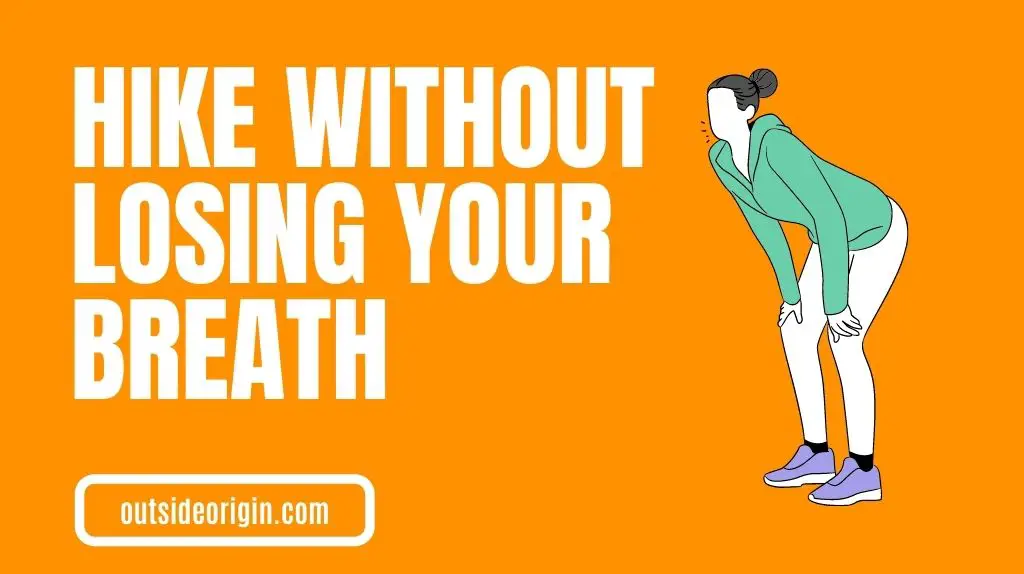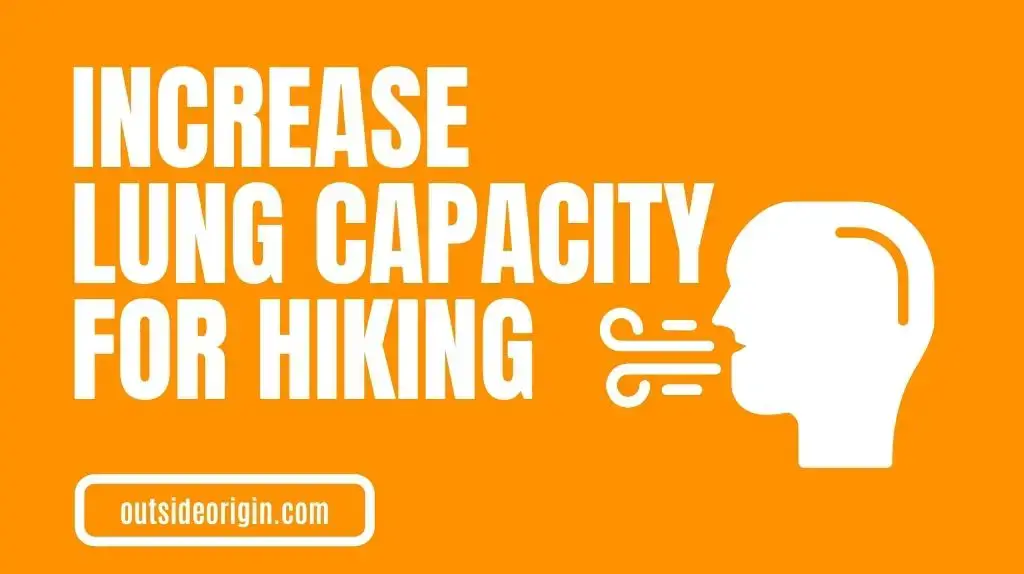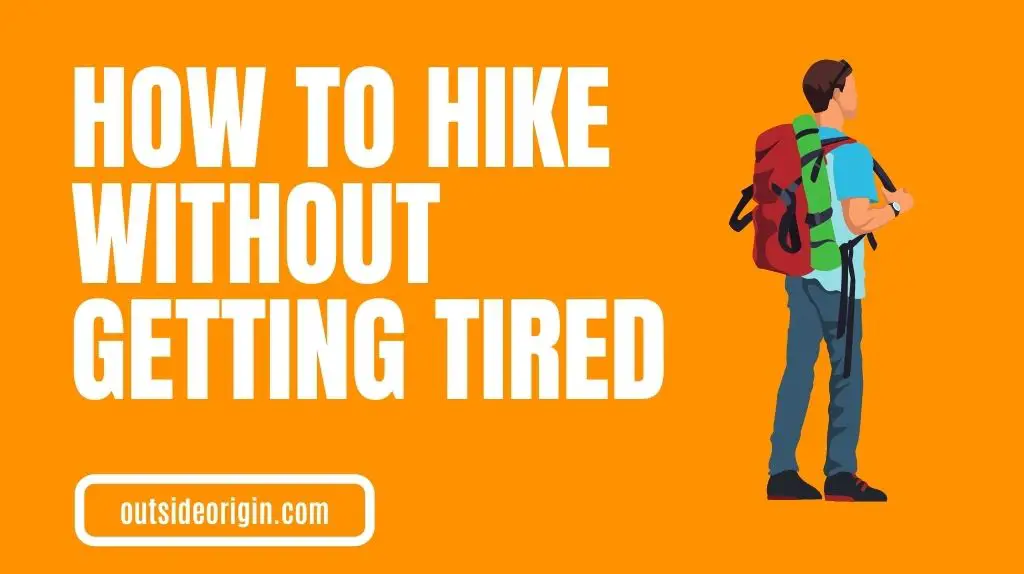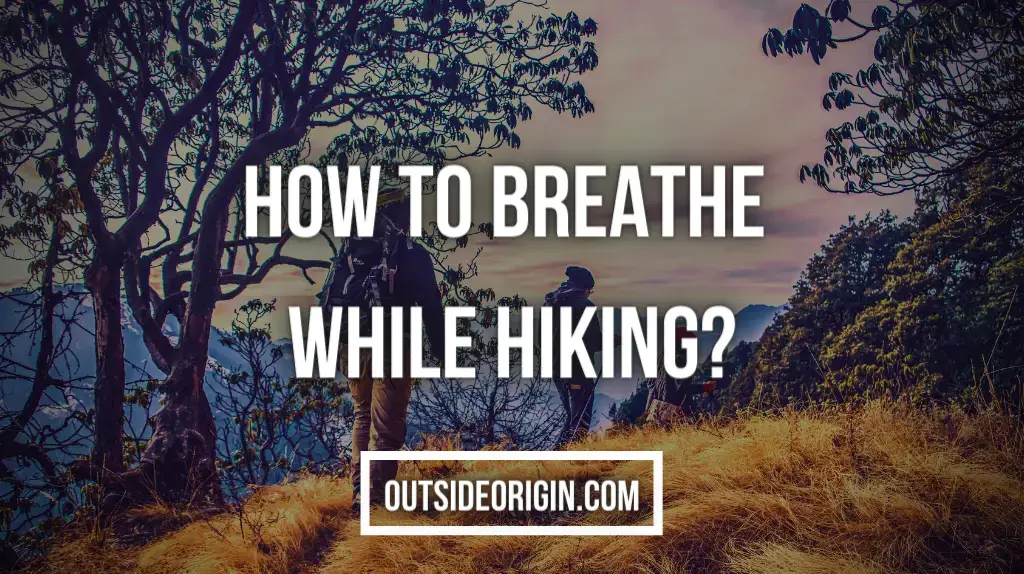Evolutionary adaptations and natural selection for millennia helped hundreds of million people live permanently and comfortably at high altitudes. Such people are genetically and physically more suited to the extreme conditions on high mountain ranges as they naturally have higher lung volumes. Hence, they can inhale more air or a different chemical balance in their blood that stops their blood-vessels over-constricting. But, this does not mean that normal people living in flat urban and rural areas cannot do anything about the breathing problems faced during hiking.
Why Can’t I Breathe When Hiking?
Both our hearts and blood vessels are affected at high altitudes and some people living on hills and mountains also have to fight against pulmonary hypertension — a rare but debilitating disease. Humans often cannot catch their breath at the top of a mountain even if all they are doing is walking or strolling. At sea level, around a fifth of the air, we breathe is oxygen and the air pressure is approximately 760 mmHg. But, as we go higher, pressure decreases and the air becomes thinner.
At sea level, higher pressure keeps oxygen molecules compressed together in the air. So, it is easier for us to breathe the amount we want in just one breath. But, with increased altitude, the molecules spread out, and in the same single breath, there are fewer molecules comprising oxygen. Hence, we need to work much harder to inhale the same amount of oxygen we do on flatlands. People who have been hiking above 3000 meters would have had over a third less oxygen in each of their breaths.
Altitude Sickness
While mountain climbing, driving hiking, or doing any other activities at a high altitude, your body may not get enough oxygen. The lack of oxygen can cause altitude sickness, which usually happens at altitudes of 8,000 feet and above. People who are not used to these heights are most vulnerable. The most common symptoms include headache and insomnia. Moreover, this altitude sickness cannot be taken lightly by anyone. The condition can be dangerous, impossible to predict, and basically, anyone at a high elevation can get it.
Why Do I Get So Out Of Breath Walking Uphill?

Walking up a flight of stairs and walking uphill are often considered similar exercises. Nonetheless, you can get out of breath or feel like all the breath has left your lungs. Most hikers are usually in decent shape, but not everyone can hold a conversation with their fellow hikers while climbing uphill. Nonetheless, getting winded while doing simple activities is not really a sign you are out of shape. It is something that can happen to everyone, fit or not. However, there are some precautions you can opt for and make the experience less distressing the next time it happens.
Exertional intolerance is something that can happen when you get winded while walking up the stairs. While approaching inclined land, you are not warmed up, your muscles are cold, your heart is low and your body is not fully prepared to move up suddenly. Furthermore, when you start climbing stairs, you are essentially doing single-leg squats with cardio mixed in it. Hence, your heart rate skyrockets at once, and need body need more oxygen at once. Another reason why you get winded so strongly is that going up uses your fast-twitch muscles, which are mostly used for explosive movements.
How Do You Hike Without Losing Your Breath?

For altitude sickness, there is only one way to truly prevent it and it is TIME. The swifter you climb to a high elevation point the less time your body will have to adjust. Henceforth, the symptoms will become worse if you do not have a day or two to get used to such conditions. After about twelve to twenty-four hours, your body can adjust itself to the effects of the high elevation.
There are some steps you can take to relieve a few symptoms of altitude sickness:
- Take deep, slow breaths before, during, and after hiking
- Drink plenty of water to stay hydrated throughout the journey
- Take enough breaks and rest whenever you can
- Return to the lower elevation point if you are unable to reach the top
- Eat plenty of carbohydrates for more energy – a diet of 70% carbs
- Advil, Tylenol, and Aspirin can be used to reduce common symptoms like headaches
- Fill a large reusable water bottle with electrolytes to keep your energy levels up
- Of course, if symptoms worsen or persist more than two days, see a doctor for professional help
- Lung Capacity is a critical factor affecting your ability to conquer log trails or climb to high elevations
- To improve, you can adapt to and use Breathing Techniques while on a hike and everyday activities as well
How Can I Increase My Lung Capacity For Hiking?

- Hiking is essentially walking, start walking more in your free time for challenging hikes
- Do switchbacks on hills – slow your pace a little and start going across the way instead of straight up
- A good combination of cardio and strength exercises to increase endurance, stamina, and lung capacity
- Do not rush and build your body slowly – it can take days, weeks, months, or even years
- Breathwork – incorporate some simple and impactful breathing exercises to increase your hiking lung capacity, and stimulate the Parasympathetic Nervous System (PNS) which brings you feelings of peace and calm
- Stay relaxed and breathe easy during the entire hiking activity – rushed breathing leads to panicking and panicking leads to breathing problems
- Simple stretches to release tightness in your shoulders, chest, and side body
- Practice good posture whether you are standing, sitting, walking, or hiking
- Go for hiking more for consistency and building up overall performance
How Can I Hike Without Getting Tired?

Muscle Fatigue, one of the leading causes for cutting a hiking trip short, can decrease the amount of force you use to perform muscle actions. It becomes impossible to enjoy outdoor activities once your legs give out irrespective of how great the surroundings may be. Hence, it is important to treat your muscles right starting right before, during, and after your hikes.
- Fuel your body with proper nutrition before and during the trip with a high level of carbs and glucose at least thirty minutes before hiking
- Take energy bars with high carbs to regenerate deteriorating leg muscles during the hikes
- Stretch before, during, and after hikes to pull muscle fibers apart allowing them to heal and grow bigger
- Shorten strides for pace controlling and reduce the pressure on your legs and allow for better circulation
- Drink plenty of water, which serves as your muscles’ lubricant – hikers should drink at least one liter per hour in hot climates and high altitudes
- Practice your form as the way you walk has a huge impact on your body’s ability to maintain itself over long distances
- Wear right gear to combat muscle fatigue while hiking
- Rest when you feel your legs are giving out on you, give your muscles the time they need to recover
- Proper training for hiking to improve overall performance, flexibility, and stamina
- Avoid shortcuts – they can be much steeper than the normal path, you can get more tired and save very little time or none at all
- Observe the terrain on which you hike – it helps you choose better where you will position your feet
- Use hiking poles – very effective and efficient on wet or slippery surfaces, use less energy, thus getting less tired
- Set reasonable goals that are physically suitable for you so that when you have to turn around you will not force yourself to reach the goal
- Hikers with heavy loads walk lightly or spare strength by carrying less stuff
- Electrolytes like liquid IV Hydration Multiplier to provide the body with potassium, sodium, glucose for optimal performance
Final Thoughts
There are plenty of ways to prevent altitude sickness while hiking and traveling on hills and mountains. Moreover, there are even breathing tips and tricks that can improve your performance and overall lung capacity so that you are fully prepared for outdoor activity.
Can You Do Me A Small Favor?
I have put a lot of time & effort into writing this post to provide you with the best info out there.
It’ll help me out if you could consider sharing it on your social media networks. You are also allowed to take any photo you want from my blog as long as you credit and link back!
Appreciate it! ❤️️

Hey, I am the founder of Outside Origin! I love hiking in my spare time and have gone to various different hikes. You can check out our about us section to learn more about what our team and I do over at Outside Origin.




